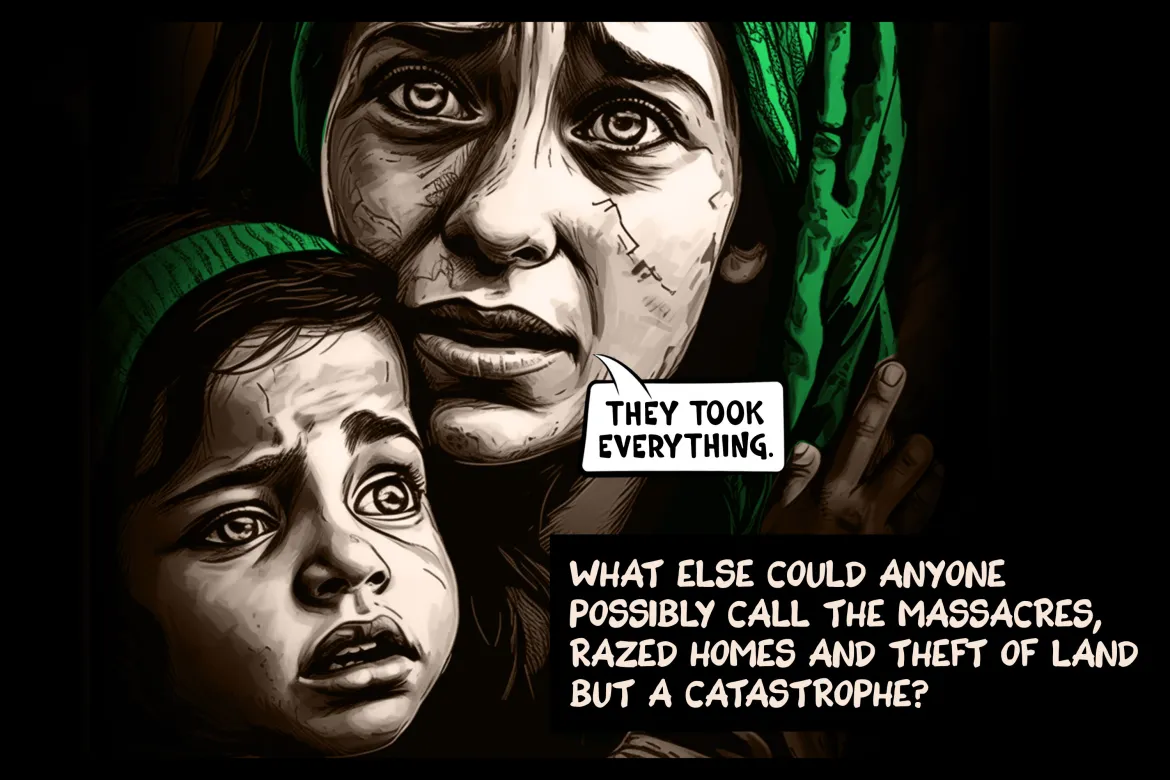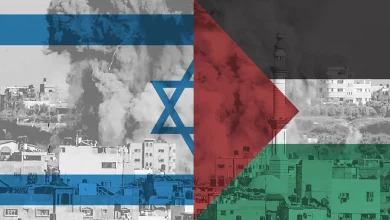As a historian a hobby of mine, it is both my privilege and responsibility to delve into the complexities of history, exploring the narratives that shape our world. Today, I want to guide you through an intricate journey, one that confronts the denial surrounding the Nakba and brings forth the profound implications it has on Israeli society.
The Denial of the Nakba: A Historical Paradox
The Nakba, an Arabic term meaning “catastrophe,” refers to the forced displacement of Palestinians during the establishment of the State of Israel in 1948. Yet, in the Israeli narrative, there exists a pervasive denial of this monumental event, a denial that echoes through the years and resonates in the hearts of many.
Our exploration begins with the foundations of Zionism, a movement that laid the groundwork for the establishment of a Jewish state. From its inception, Zionism operated on a negation — a denial of time and space for Jews outside of Zion and, strikingly, a denial of the existence and significance of the indigenous Arab population in Palestine. This denial, deeply rooted in the ideology that envisioned a “land without people for a people without land,” forms the bedrock of the Nakba’s denial.
The Nakba as a Non-Event: Unraveling the Psychological Defense
For the Zionist subject, the Nakba is not just a denied historical occurrence; it is a necessary denial. The violent events of 1948, involving the expulsion of Palestinians, are justified as an unavoidable response to the disturbance caused by the ‘locals’ who supposedly rejected the establishment of the new entity, the Jewish State. In this narrative, it is inconceivable that the Nakba could have taken place, as it challenges the very essence of Zionist identity.
This denial extends beyond historical events. It seeps into the present, shaping the Israeli consensus against the discussion of Palestinian return. The very act of entertaining this topic is perceived as an existential threat, a threat that is systematically excluded from public debate. The denial of the Nakba results in the continued denial of the rights of millions of Palestinians to this day.
Confronting the Nakba: A Surprising Slap in the Face
As we navigate through this historical labyrinth, we encounter the reactions of Jewish Israelis when exposed to the Nakba for the first time. The encounter is likened to a surprising slap in the face — an unexpected awakening to a tragedy that happened to their Palestinian neighbors, a tragedy they, as part of the opposing side, are implicitly linked to.
Guilt and helplessness permeate the emotions of Jewish Israelis as they grapple with the sudden realization that their history is entwined with the suffering of the Palestinian people. The encounter challenges the very foundations of the Zionist narrative, a narrative that often stands on shaky ground, established through a violent process denied as an event that did not happen.
A Path to Reconciliation: Rising Above Emotions
As we contemplate the emotional and psychological impact of Nakba denial, it becomes clear that rising above these emotions is crucial for meaningful reconciliation. Guilt, while difficult to bear, can be recognised and addressed. However, the larger challenge lies in confronting the narrative that has been ingrained in the collective consciousness.
The Israeli consensus against Palestinian return is a manifestation of this denial, a denial that the Nakba ever occurred. If we are to move towards conciliation, we must acknowledge the historical injustice inflicted upon the Palestinians. The discussion of responsibility becomes paramount, as recognition of the Nakba challenges the very foundation upon which the Israeli state was built.
Unveiling the Tragedy, Igniting Compassion
As we explore the intricate tapestry of history, it is imperative not just to impart knowledge but to cultivate a profound empathy for the harrowing human experiences woven into the fabric of the Nakba. This chapter in history is not merely a footnote; it stands as a chilling testament to the unfathomable complexities of identity, displacement, and the urgent need for acknowledgment and reconciliation.
The Nakba, shrouded in shadows of denial, is a tragic saga marked by genocide, death, and the merciless murder of countless Palestinian civilians. Throughout these dark periods, rebels and factions emerged, born out of the bitter hatred and the indiscriminate killing of their own people. Gaza, a poignant example, illustrates how decades of warfare have spawned factions and rebel groups, perpetuated by a cycle of violence that has left broken homes and shattered lives in its wake. The sad reality is that the genesis of these rebellions stems from almost 75 years of wars, fueled by Anti-Zionist agendas and false imprisonment, creating a state of affairs reminiscent of the concentration camps during Nazi Germany’s reign, albeit on a different scale.
In this context, it is crucial to recognise that these rebellions can only be dismantled through actions rooted in love and unity, rather than perpetuating a cycle of hate. Hope must be kindled, offering solace to an entire population in Palestine that has endured immeasurable suffering.
Israeli citizens must come to grips with the fact that the Anti-Zionist regime, by fostering division, is steering the democratic state toward rebellion. True peace and prosperity are far more attainable when achieved not just economically but also in the spirit of unity. The land, steeped in the history of the Abrahamic faiths, should serve as a reminder that mutual understanding and cooperation are paramount. This historical terrain, enriched by the narratives of prophets and divine teachings, is not a battleground for destruction but a sacred ground that should bind people together in shared reverence for God.
It is time to recognise that the path forward lies not in the perpetuation of conflict but in the shared pursuit of peace, prosperity, and, most importantly, compassion. As future historians and leaders, I implore you to carry forth the torch of truth, dismantling the barriers of denial, and contributing to a world where empathy and understanding become the catalysts for enduring peace. Let us collectively strive to transform this tragic chapter into a testament of resilience, reconciliation, and a shared commitment to the sanctity of human life.



